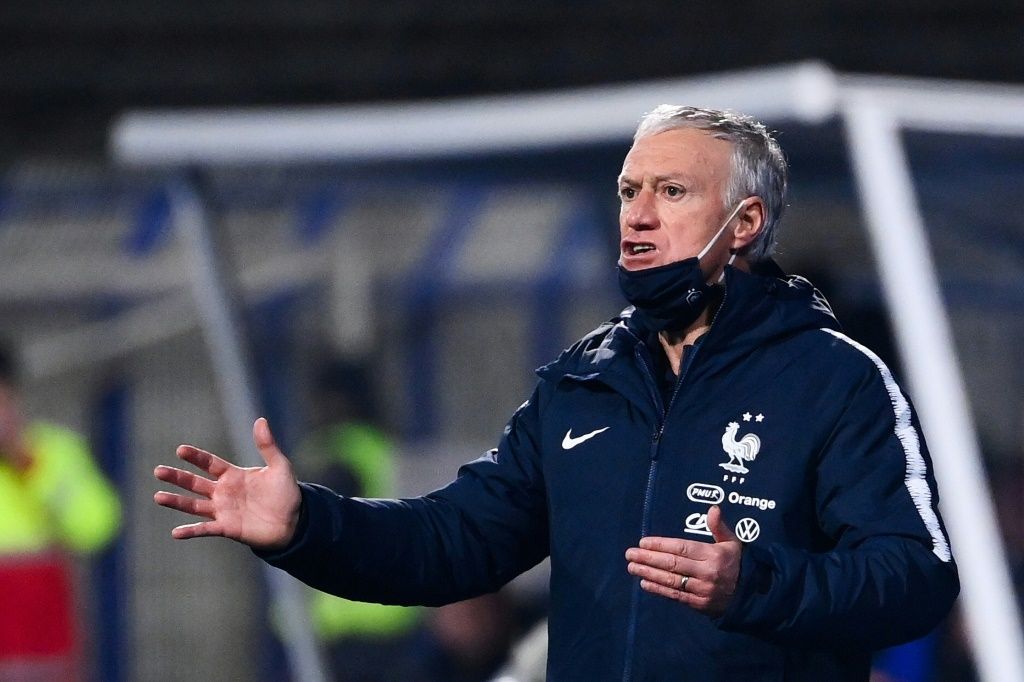Does a World Cup trophy, three major finals and an underrated club managerial career make Didier Deschamps an all-time coaching great?
Didier Deschamps was a penalty shootout away from becoming only the second coach in football’s lengthy history to win back-to-back FIFA World Cups.
Italy’s Vittorio Pozzo holds that distinction for his exploits in 1934 and 1938. Although Deschamps failed to replicate that on Sunday, he might still have a strong case for an all-time managerial shout.

Much like the ‘GOAT debate’, the conversation about football’s greatest manager has been going on for a while with no clear end in sight but perhaps it is time to throw a new name into the mix along with the usual suspects.
Didier Deschamps’ case for managerial GOAT
The reservations about Deschamps’ career stem from how his team plays – the curse of pragmatism – but not even his staunchest detractors can deny his achievements.
His milestones with the French national team are impressively exclusive, making up a CV to rival any of his peers.
The exploits of Russia 2018 made Deschamps only the third person to win the FIFA World Cup (football’s greatest prize) as a player and a manager, poetically exactly 20 years apart. He along with Brazil’s Mario Zagallo and Germany’s Franz Beckenbauer are the members of this exclusive club.

Exclusivity is a recurring theme of Deschamps’ career as France’s 2-0 semi-final win over Morocco on December 14 made him only the fourth manager to take a team to consecutive FIFA World Cup finals.
Vittorio Pozzo with Italy (1934, 1938), Carlos Bilardo with Argentina (1986, 1990), and Franz Beckenbauer with Germany (1986, 1990) are the co-occupants of this exclusive section with Deschamps.
The man in question has also led France to 20 wins in major tournaments i.e the World Cup and Euros which doesn’t seem like a big deal considering he’s had the job for 12 years.
But here’s the kicker; France as a nation with rich football history (they even played the first World Cup in 1930) have only won 60 games in major tournaments and Deschamps alone is responsible for 20 of those wins, a whopping 33%.
As the Les Blues handler, Deschamps led his country to a Euros final in 2016 which they lost in extra time to Portugal, won the World Cup two years later, won the UEFA Nations League in 2021 (if that counts for something) and most recently lost the 2022 FIFA World Cup final on penalties to Argentina.
So, is this decade-long run of milestones and achievements not enough to make Deschamps one of the best to man a touchline? The most frequent retort is that different rules apply to national team managers than club managers.
Didier Deschamps is more than just a national team manager
The unspoken rule for football managers is that international management is supposedly easier than the rigours of gruelling club seasons.
Managers tend to get more respect for achieving excellence with clubs while national teams in some cases are where coaching careers go to die after they can no longer cope with the fast-paced nature of club football.
This is partly why Deschamps’ name is not echoed as loudly in the managerial GOAT debate but even by those lopsided parameters, he has earned his stripes.

The French manager had a successful run of milestones and trophies in club management prior to his Les Blues appointment in 2012 which has since flown under the radar.
Most people remember the 2004 UEFA Champions League final for the magical run of Jose Mourinho’s Porto but the truth is that final would have been an underdog story either way.
On the losing end was Monaco, led by Didier Deschamps to their first and only Champions League final to date, four years into his first managerial appointment having already won the Coupe de la Ligue title a year before.

Deschamps would once again be on the wrong side of a historic footballing moment, most people remember Juventus’ Calciopoli scandal which led to the Italian giants getting relegated in 2006 and manager Fabio Capello resigning but not a lot of people have a clear recollection of what happened in the Serie B.
It was Deschamps who took the job which was viewed as a poisoned chalice at the time and facilitated Juventus’ instant promotion to the top flight by winning the Serie B title.

Although clashes with the club management led to his resignation at the end of his one and only season in Turin, meaning he didn’t get to reap the rewards of his labour in Serie A which is probably why his time there isn’t remembered as much.
Deschamps’ next managerial appointment was with Marseille in 2009 and his impact was immediate, leading the club to their first Ligue 1 title in 18 years in his first season.

He also manned Marseille’s Champions League quarter-final run in 2012 which was the furthest the club had progressed in the tournament in 19 years.
By the time he left Marseille on July 2, 2012, to take the French job six days later, Deschamps had won six trophies in three years at the club, including three consecutive Coupe de la Ligue titles.
This is particularly impressive because Marseille had been trophyless for 17 years before appointing Deschamps.
Didier Deschamps is an all-time great
It is particularly difficult to pinpoint where Deschamps ranks among all-time managerial greats as debates like this are mostly subjective and there is no official ranking of great coaches.

But with the above-listed achievements and milestones in a managerial career that spans two decades, it is clear that Deschamps has at the very least earned the right to be in consideration for the greatest manager of the modern era.
With league and cup titles in multiple leagues and countries and the level of international accomplishments with France, Deschamps is on the same level with Jose Mourinho, Pep Guardiola, Arsene Wenger, Sir Alex Ferguson and others at the highest echelons of football coaching.
Pulse





